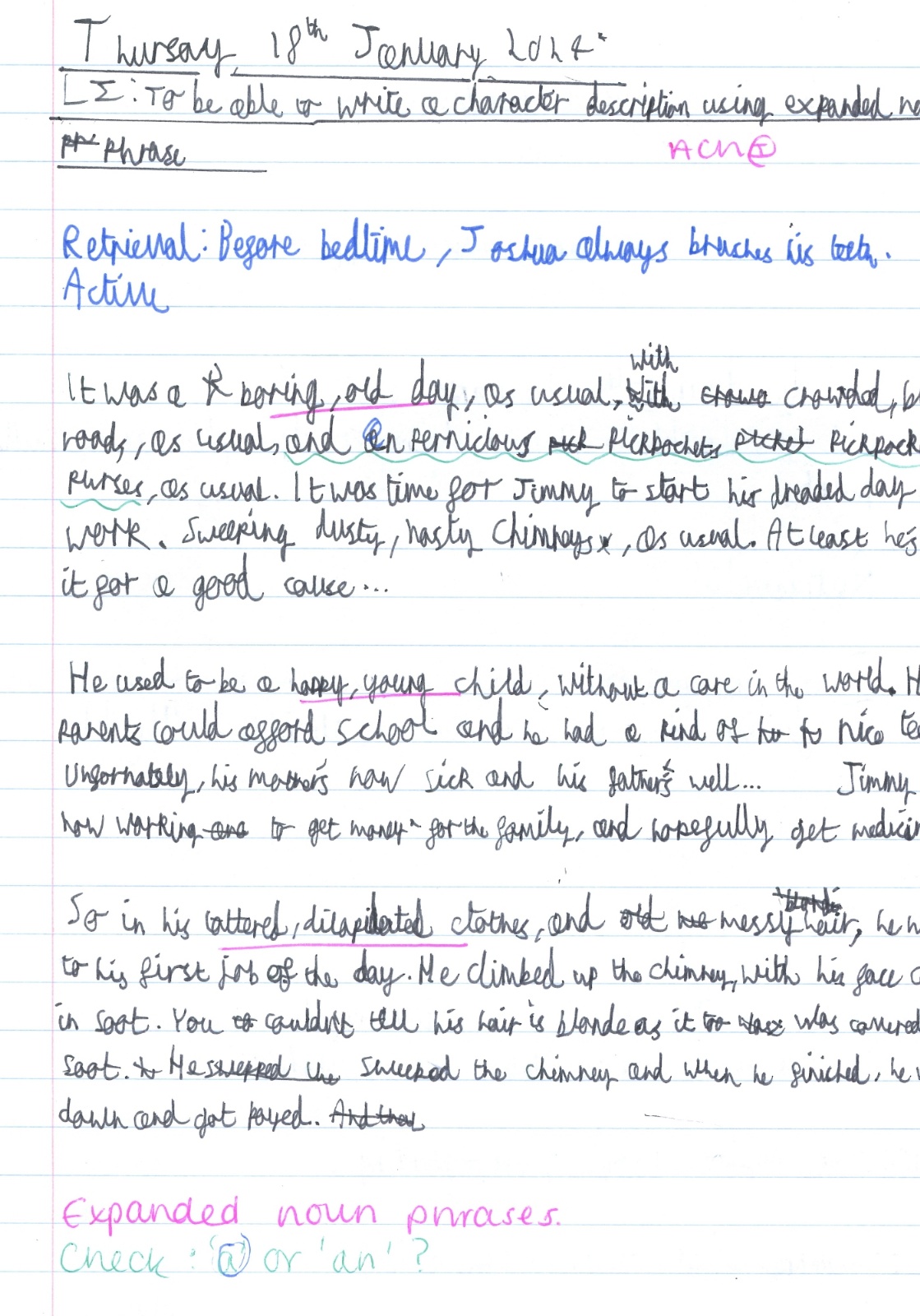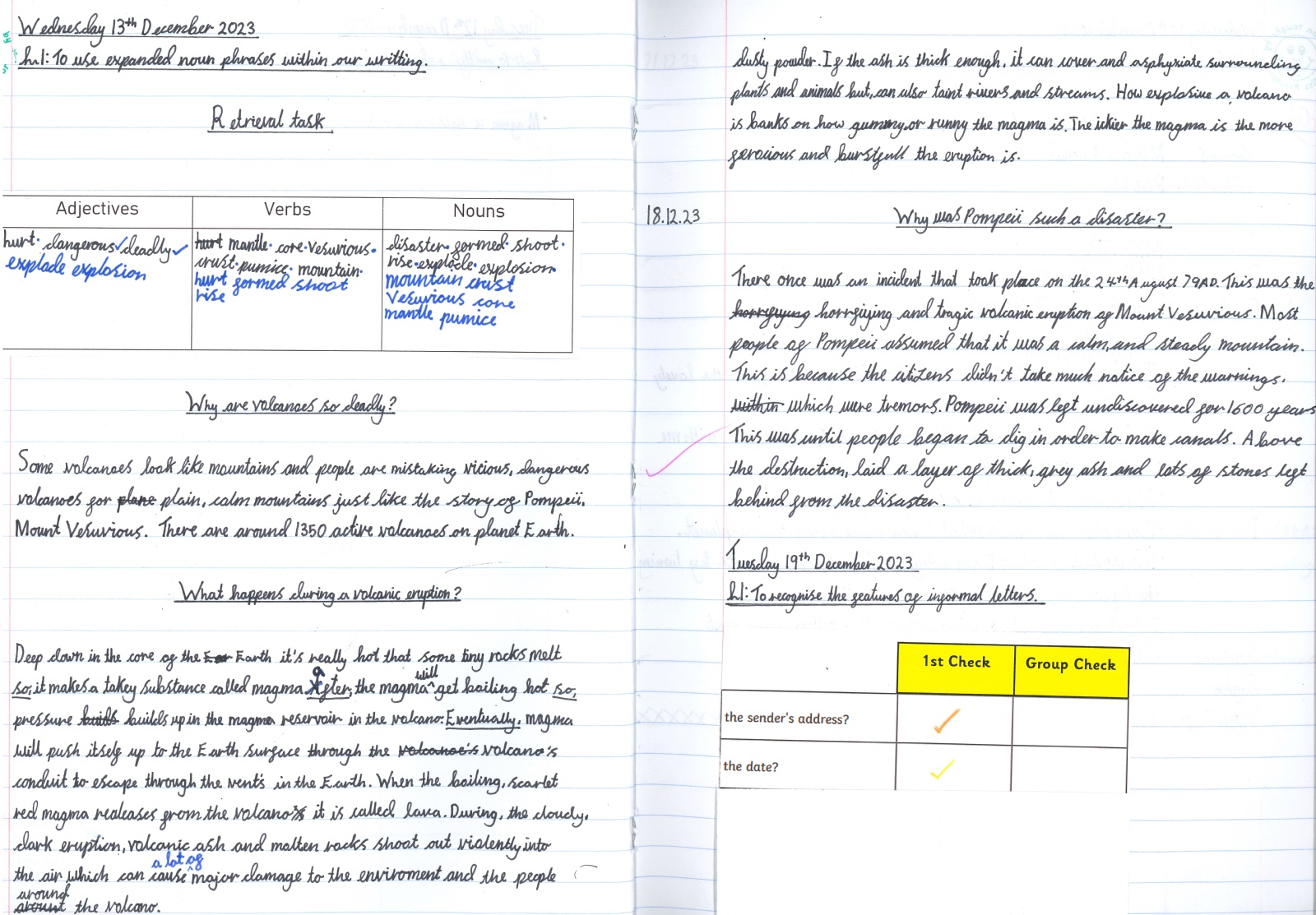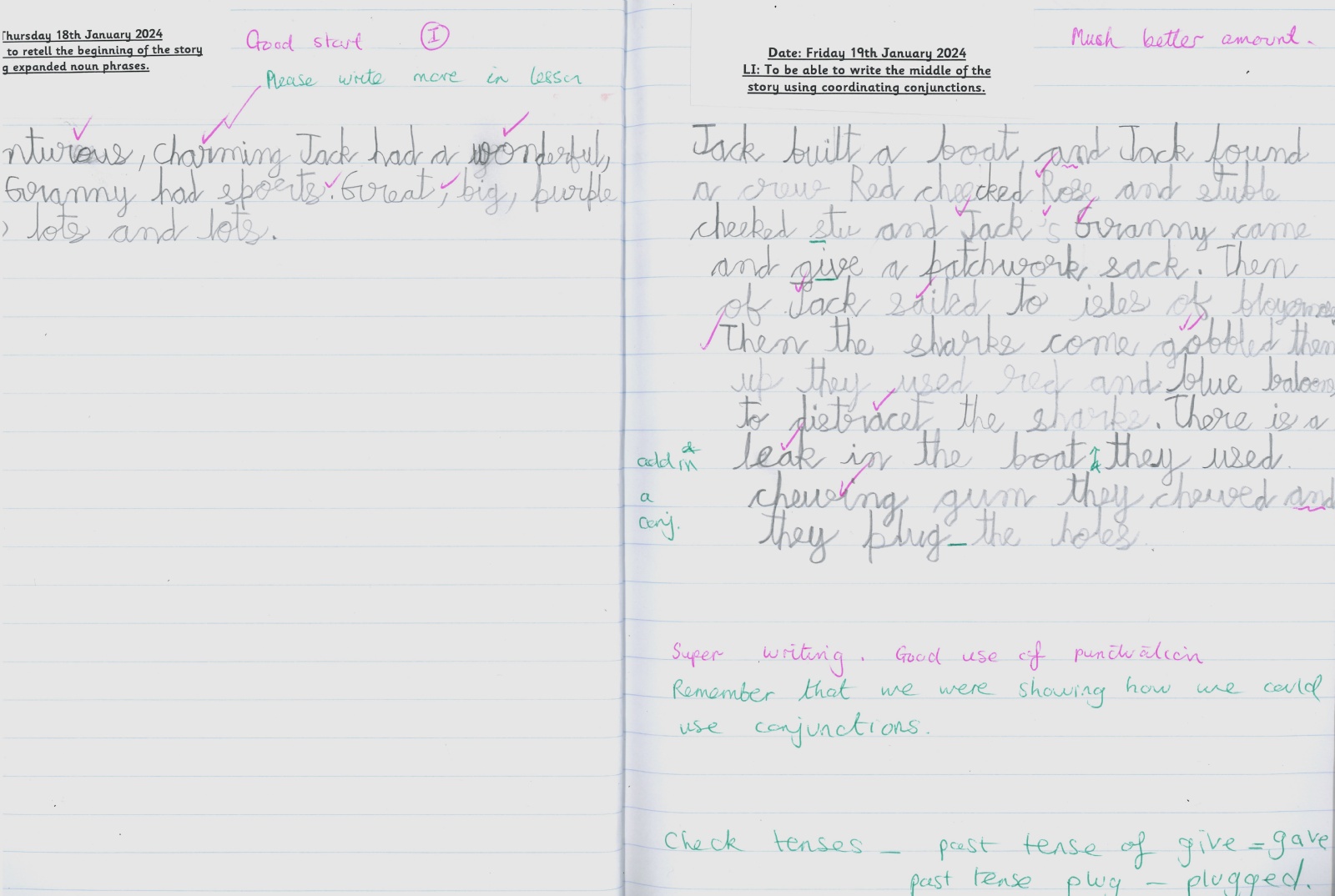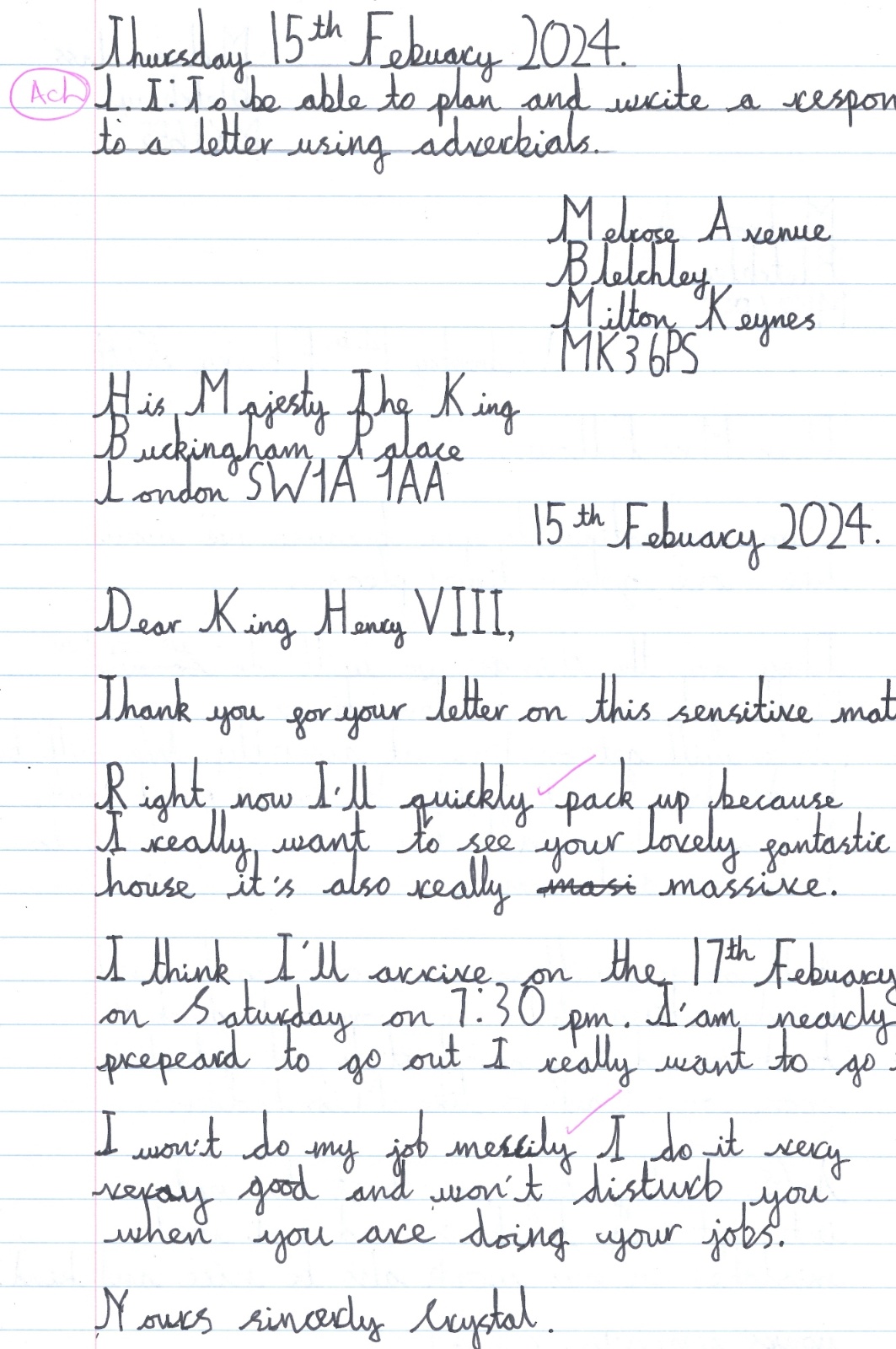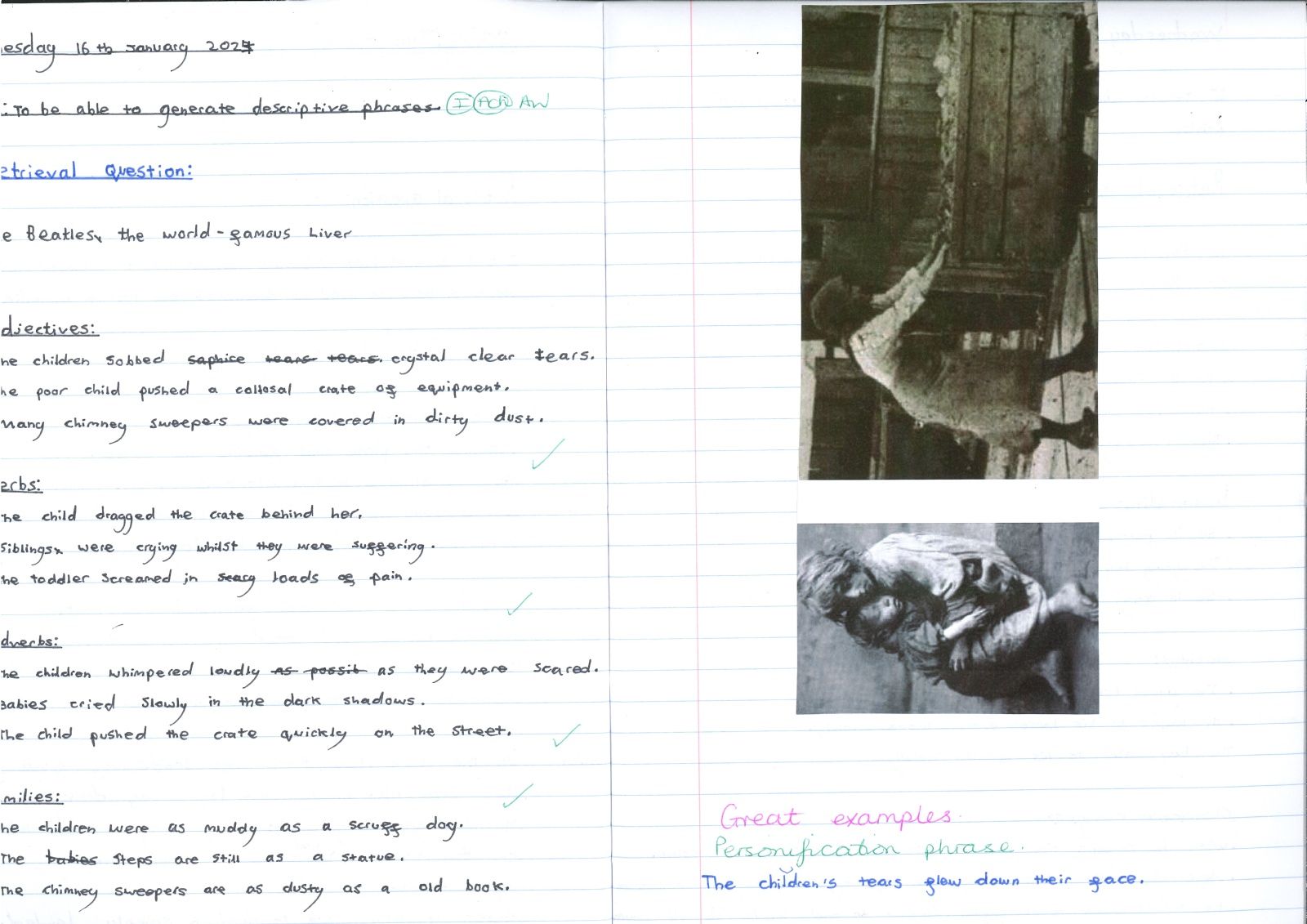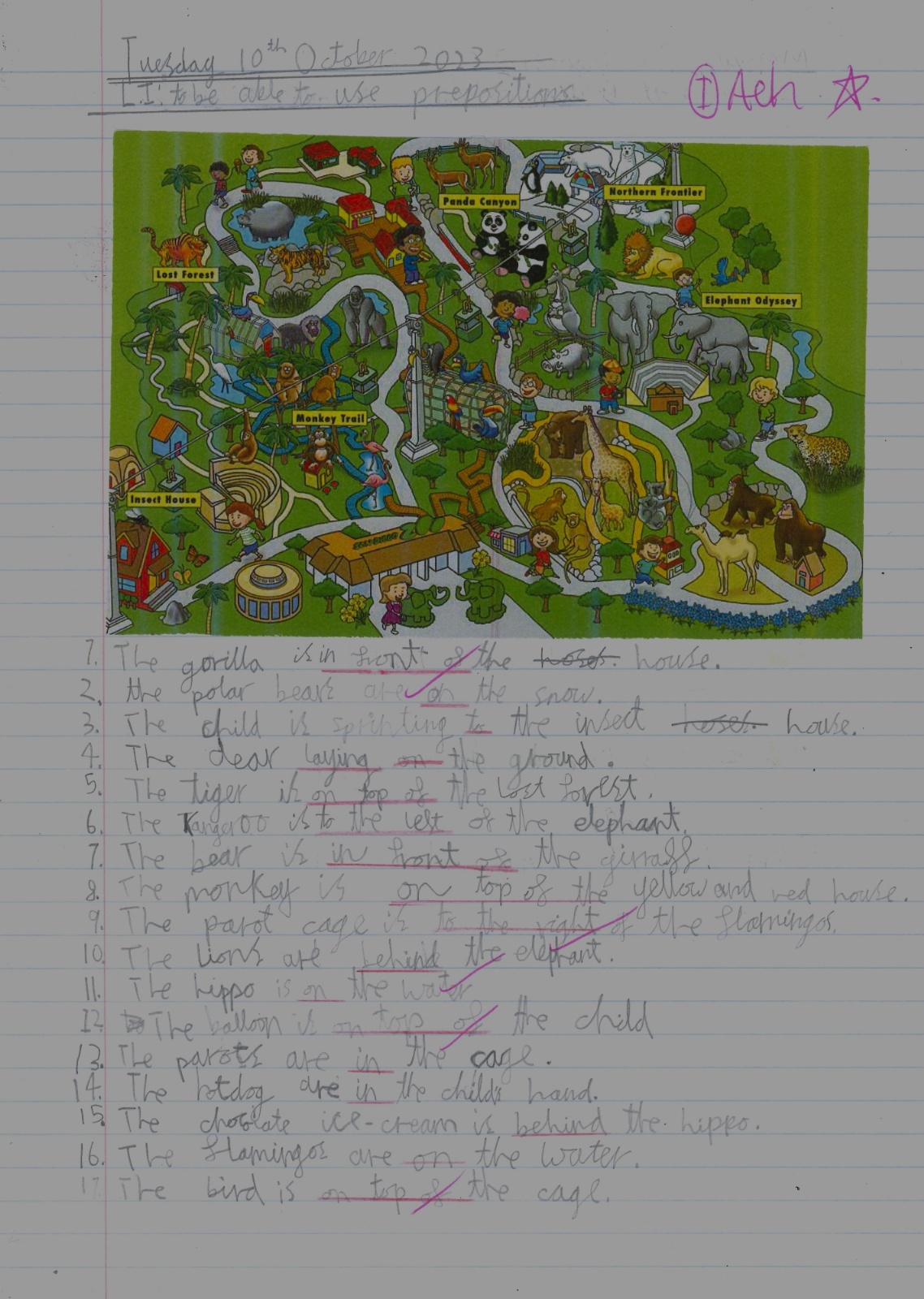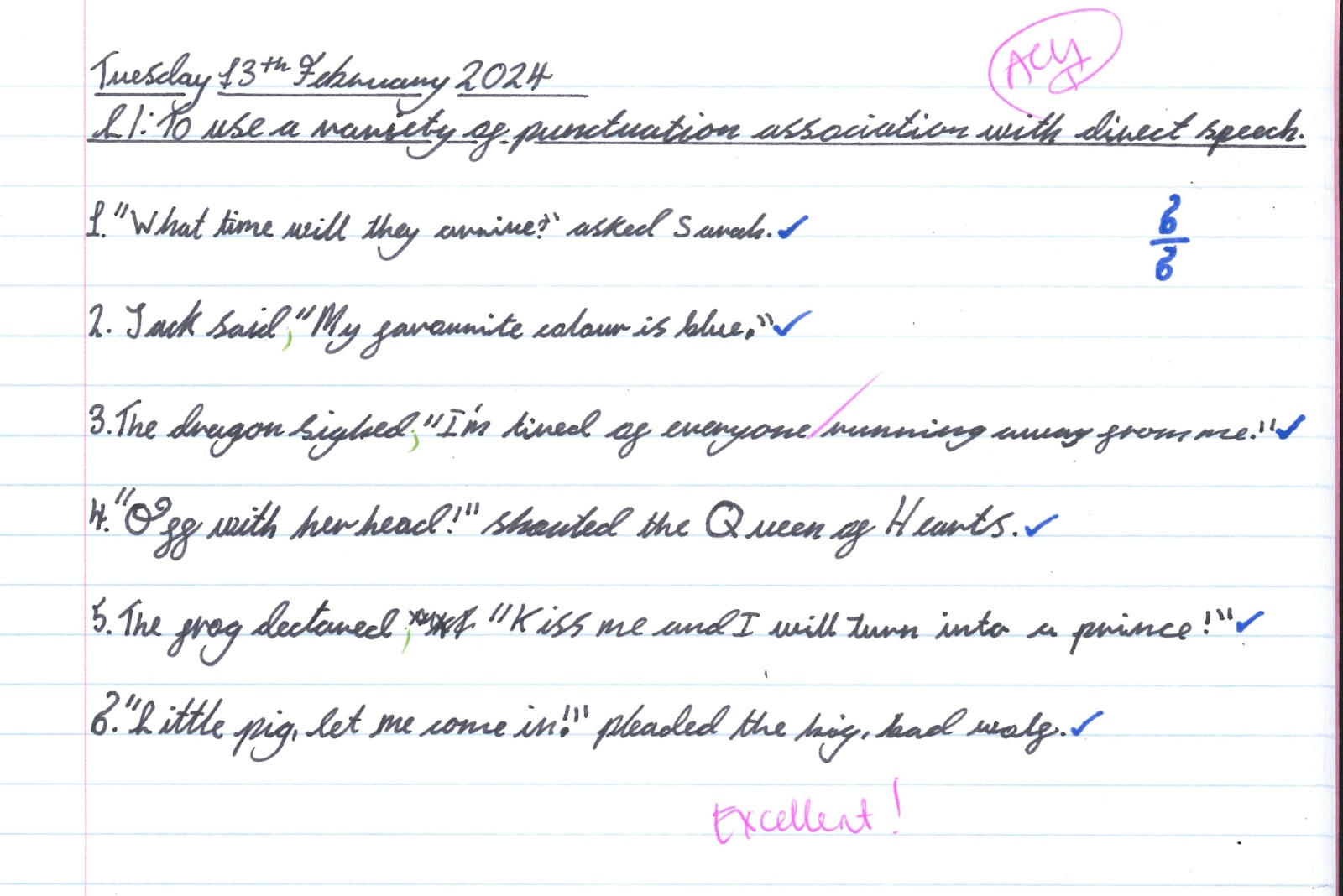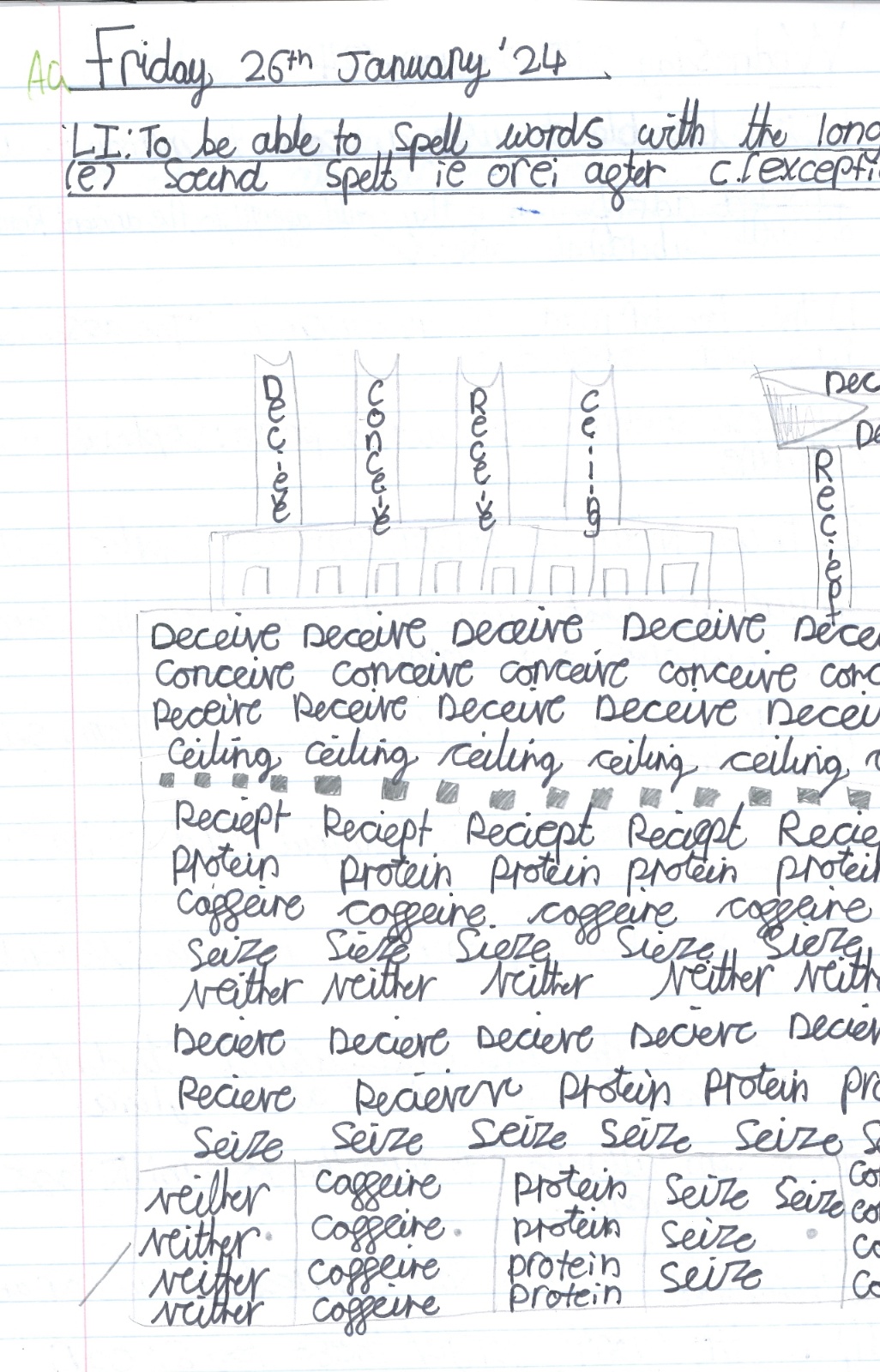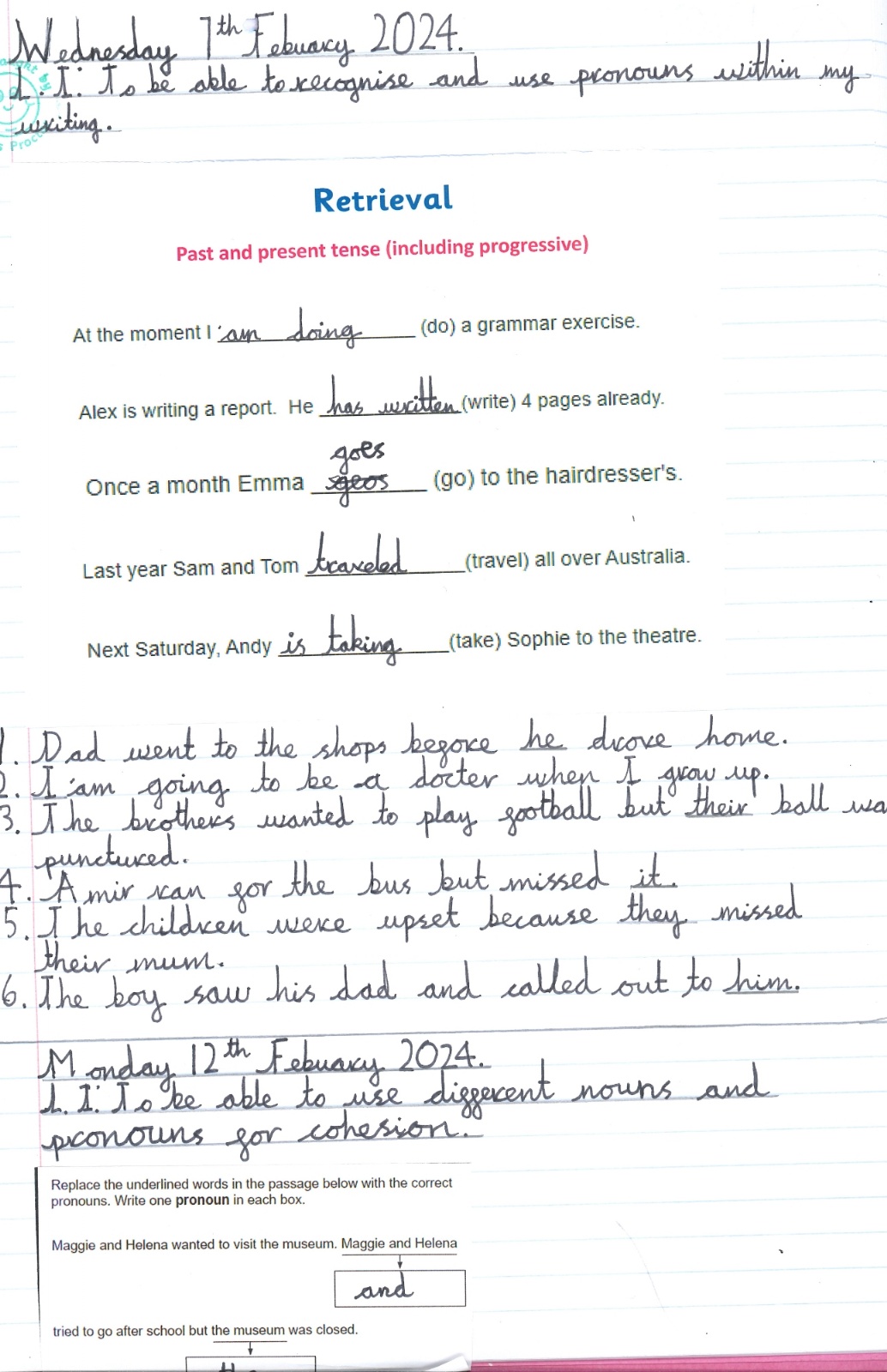Writing at Abbeys
At Abbeys, we believe in providing all children with an engaging, enriching, and purposeful curriculum that not only stimulates their intellectual growth but also fosters their personal development. Our goal is to equip students with the essential skills in vocabulary, writing, grammar, and oracy, ensuring they have the best opportunities to excel in school and later in life.
We strive to develop our students' cultural capital by integrating writing skills across the entire curriculum. This approach allows children to practice and enhance their writing abilities not only during English lessons but throughout various subjects. By creating a cohesive learning experience, we aim to foster a deep love for language and English, encouraging students to immerse themselves fully in all aspects of their English learning journey.
Our commitment to high-quality first teaching is central to stimulating students' thinking and enhancing their academic progress. We prioritise giving children access to educational experiences that challenge and inspire them. We also provide numerous opportunities for creative and imaginative expression through speech, drama, and writing. This holistic approach ensures that students can express themselves effectively and confidently across different mediums.
To develop students' writing proficiency, we focus on teaching them to write clearly and effectively for a variety of audiences and purposes. This includes using correct spelling, punctuation, and syntax. We also encourage students to reflect on their own learning, helping them grow into critical thinkers and skilled writers.
Teaching students how to present their work in diverse ways is another key aspect of our curriculum. We emphasise the importance of expression, encouraging students to read aloud with confidence. Where possible, we integrate ICT to provide alternative methods of recording and presenting work, ensuring all students have the tools they need to succeed.
Each day at Abbeys, we teach Writing and SPaG (Spelling, Punctuation, and Grammar) lessons that are meticulously planned to align with our chosen topics and cover all curriculum aspects. Additionally, we have handwriting lessons three times per week using the PenPals program. This program is carefully mapped out and sequenced by year groups and phases to ensure a structured and consistent development of handwriting skills.
At Abbeys we are dedicated to providing a well-rounded and comprehensive education that prepares students for future success. By focusing on language skills, creative expression, high-quality teaching, and reflective learning, we aim to cultivate a love for English and a strong foundation in communication skills that will benefit our students throughout their lives.
The national curriculum for writing in England from the Foundation Stage (Early Years Foundation Stage) through to Key Stage 2 (KS2) provides a structured framework for developing writing skills in children. This curriculum is designed to ensure that children progress in their ability to write coherently, creatively, and accurately, while also understanding the importance of grammar, punctuation, and spelling. Here’s a detailed breakdown of what this entails at each stage:
Early Years Foundation Stage (EYFS)
In the Foundation Stage, writing is part of the 'Communication and Language' and 'Literacy' areas of learning. The goals include:
-
Communication and Language:
- Listening and Attention: Children are encouraged to listen attentively in a range of situations.
- Understanding: They learn to follow instructions involving several ideas or actions.
- Speaking: They express themselves effectively, showing awareness of listeners’ needs.
-
Literacy:
- Writing: Children use their phonic knowledge to write words in ways which match their spoken sounds. They also write some irregular common words and simple sentences that can be read by themselves and others. Most of their words are spelt correctly, and others are phonetically plausible.
Key Stage 1 (Years 1 and 2)
In KS1, the curriculum emphasises the development of fundamental writing skills:
-
Year 1:
- Composition: Writing sentences by saying out loud what they are going to write about, composing a sentence orally before writing it, and sequencing sentences to form short narratives.
- Handwriting: Beginning to form lower-case letters in the correct direction, starting and finishing in the right place. Understanding which letters belong to which handwriting 'families' and practising these.
- Spelling: Spelling words containing each of the 40+ phonemes already taught, common exception words, and the days of the week. Naming the letters of the alphabet in order.
- Vocabulary, Grammar, and Punctuation: Leaving spaces between words, joining words and joining clauses using "and", beginning to punctuate sentences using a capital letter and a full stop, question mark, or exclamation mark.
-
Year 2:
- Composition: Developing positive attitudes towards and stamina for writing by writing narratives about personal experiences and those of others (real and fictional). Writing about real events, writing poetry, and writing for different purposes.
- Handwriting: Forming lower-case letters of the correct size relative to one another, starting to use some of the diagonal and horizontal strokes needed to join letters, writing capital letters and digits of the correct size, orientation, and relationship to one another and to lower-case letters.
- Spelling: Segmenting spoken words into phonemes and representing these by graphemes, spelling many correctly. Learning to spell common exception words and some words with contracted forms.
- Vocabulary, Grammar, and Punctuation: Learning how to use both familiar and new punctuation correctly, including full stops, capital letters, exclamation marks, question marks, commas for lists, and apostrophes for contracted forms and the possessive (singular).
Key Stage 2 (Years 3 to 6)
In KS2, the curriculum focuses on consolidating and expanding writing skills, encouraging creativity, and enhancing technical proficiency:
-
Lower Key Stage 2 (Years 3 and 4):
- Composition: Planning their writing by discussing and recording ideas. Composing and rehearsing sentences orally, progressively building a varied and rich vocabulary and an increasing range of sentence structures. Organising paragraphs around a theme.
- Handwriting: Using the diagonal and horizontal strokes that are needed to join letters and understanding which letters, when adjacent to one another, are best left unjoined.
- Spelling: Using further prefixes and suffixes and understanding how to add them. Spelling further homophones and common exception words.
- Vocabulary, Grammar, and Punctuation: Extending the range of sentences with more than one clause by using a wider range of conjunctions, using the present perfect form of verbs, choosing nouns or pronouns appropriately, and using conjunctions, adverbs, and prepositions to express time and cause.
-
Upper Key Stage 2 (Years 5 and 6):
- Composition: Identifying the audience for and purpose of the writing, selecting the appropriate form and using other similar writing as models for their own. Noting and developing initial ideas, drawing on reading and research where necessary.
- Handwriting: Writing legibly, fluently, and with increasing speed by choosing which shape of a letter to use when given choices and deciding whether or not to join specific letters.
- Spelling: Using further prefixes and suffixes and understanding the guidance for adding them. Spelling some words with 'silent' letters, continuing to distinguish between homophones and other words which are often confused.
- Vocabulary, Grammar, and Punctuation: Recognising vocabulary and structures that are appropriate for formal speech and writing, including subjunctive forms. Using passive verbs to affect the presentation of information in a sentence, using expanded noun phrases to convey complicated information concisely, and using modal verbs or adverbs to indicate degrees of possibility.
Summary
The national curriculum for writing in England aims to progressively build children's writing skills from simple sentence construction and spelling in the Foundation stage and KS1, to more complex narrative, factual, and creative writing in KS2. Each stage is designed to ensure that children not only learn to write accurately and legibly but also develop the ability to express their ideas clearly and effectively for different purposes and audiences.
Please see below some examples of the children's handwriting
Please see below some examples of the children's monthly writing assessments
Please see below for some examples of the Children's work during English lessons
Please see below some examples of the childrens SPAG (Spelling, Punctuation and Grammar)

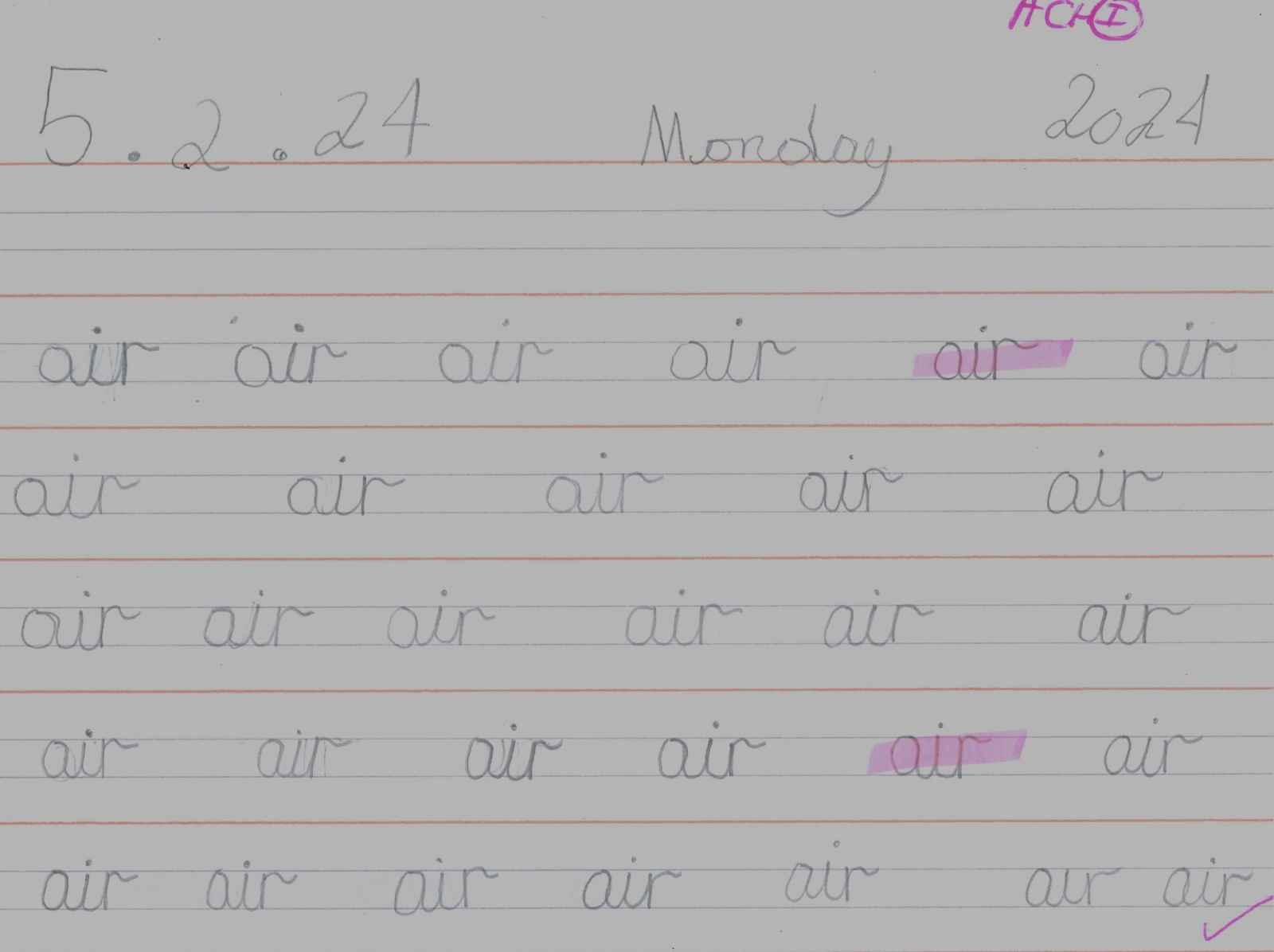
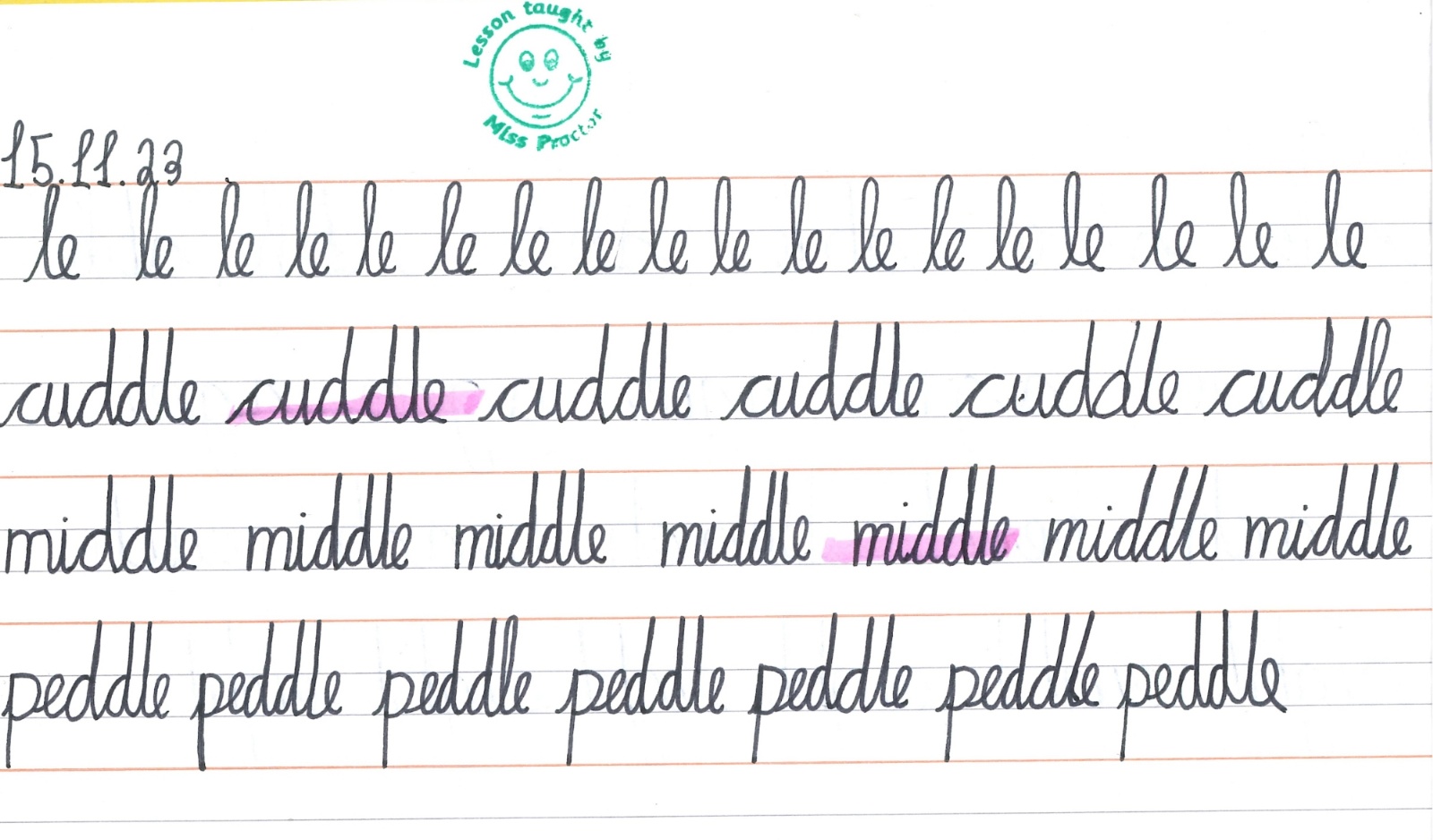
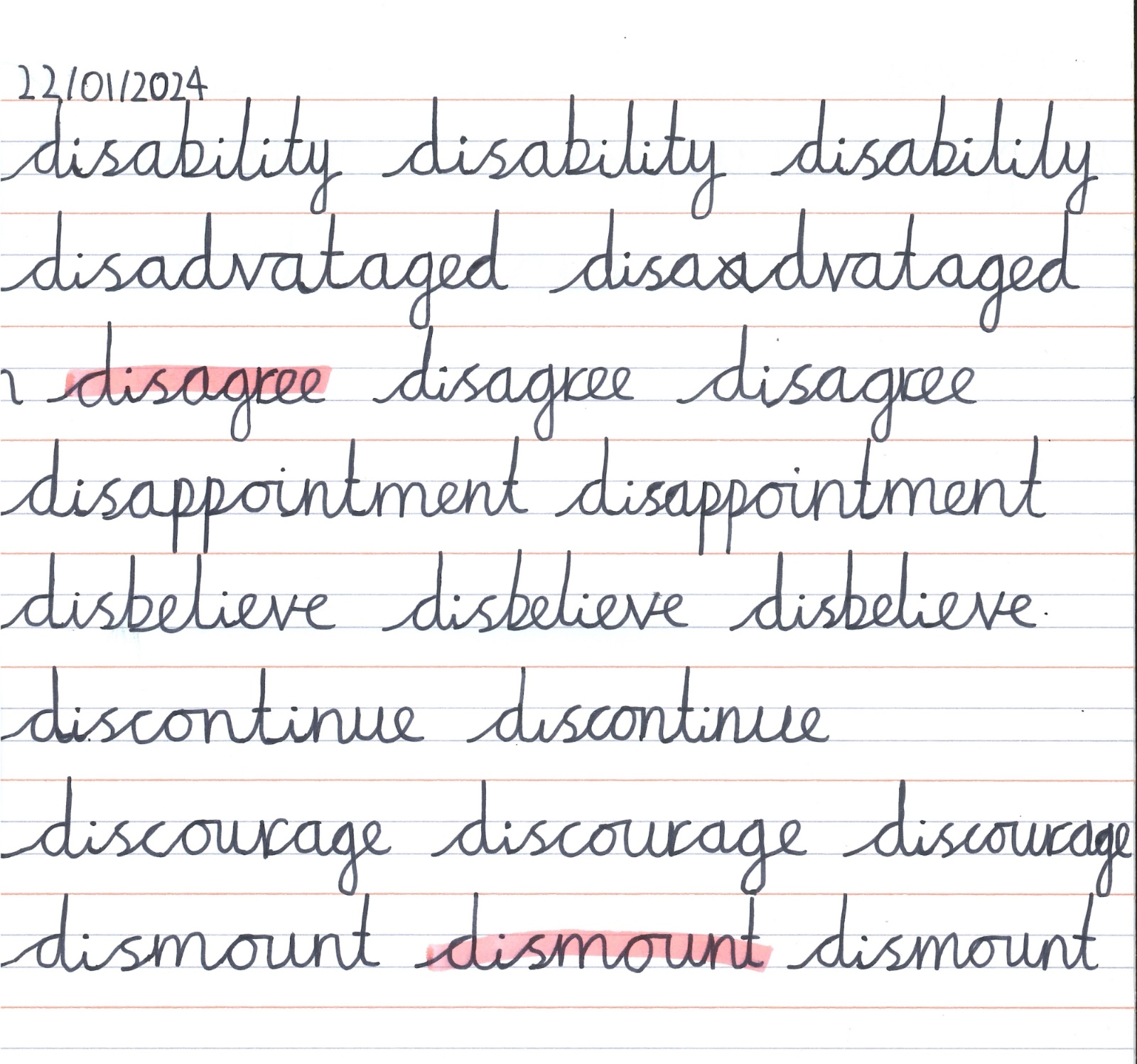
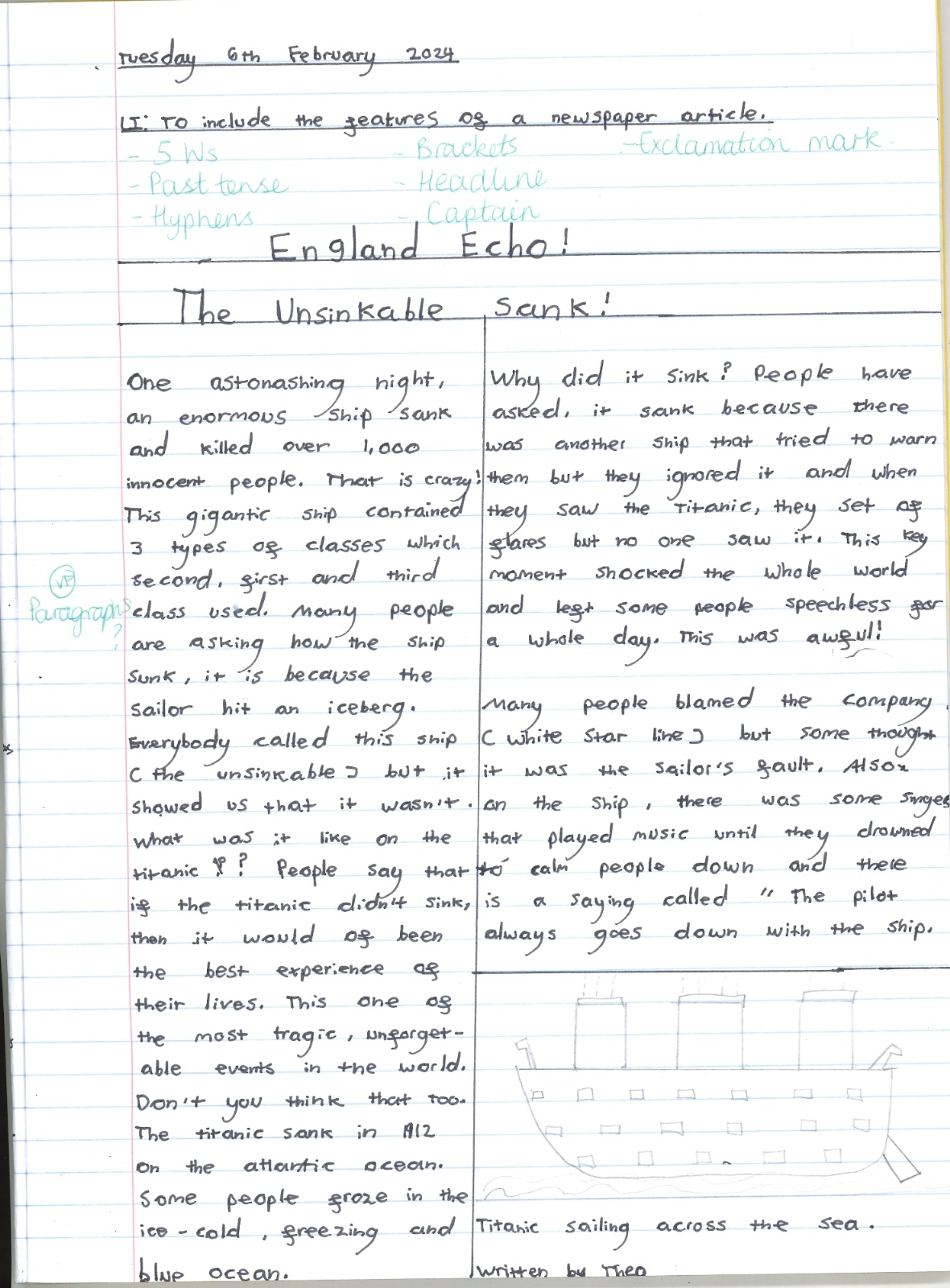
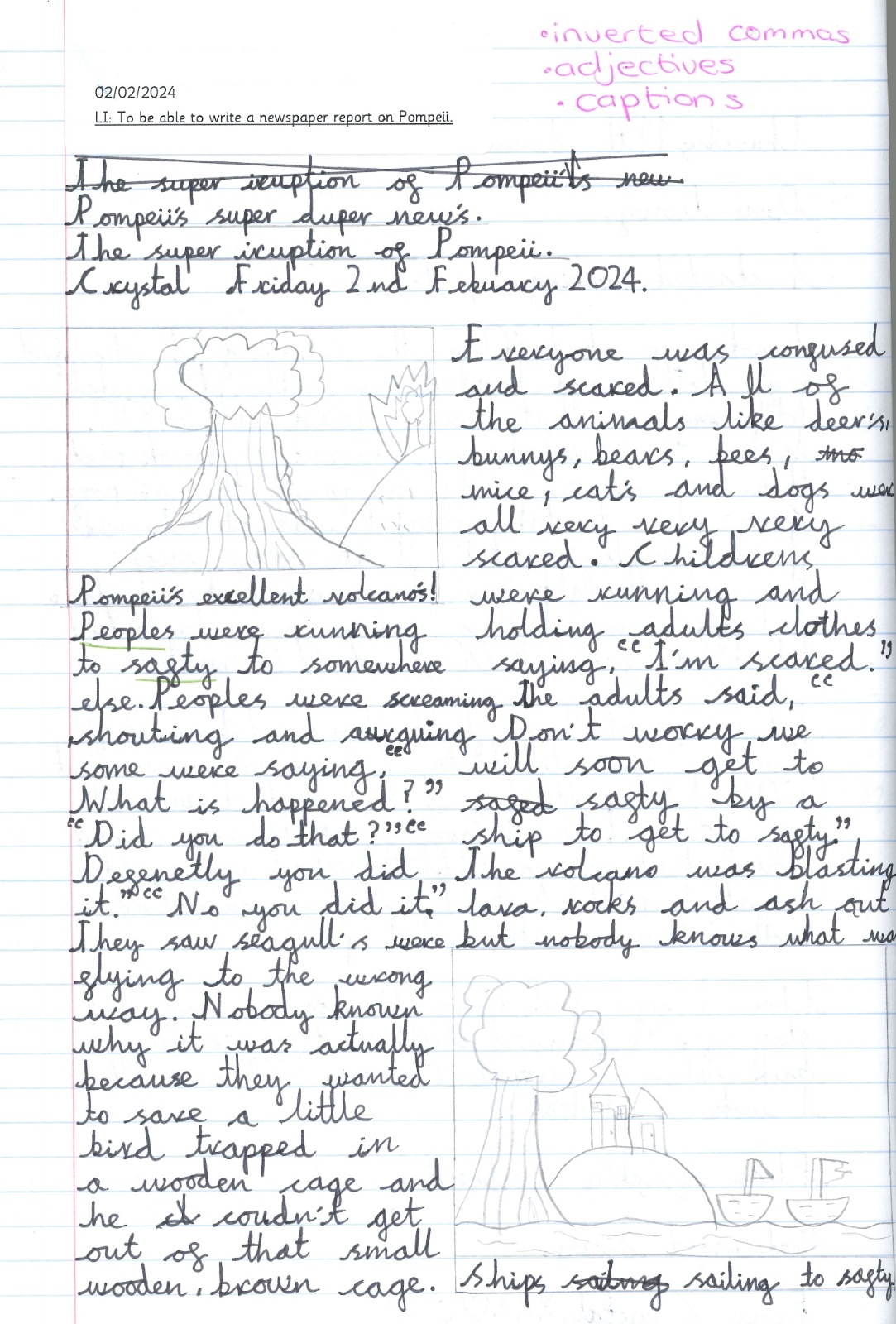
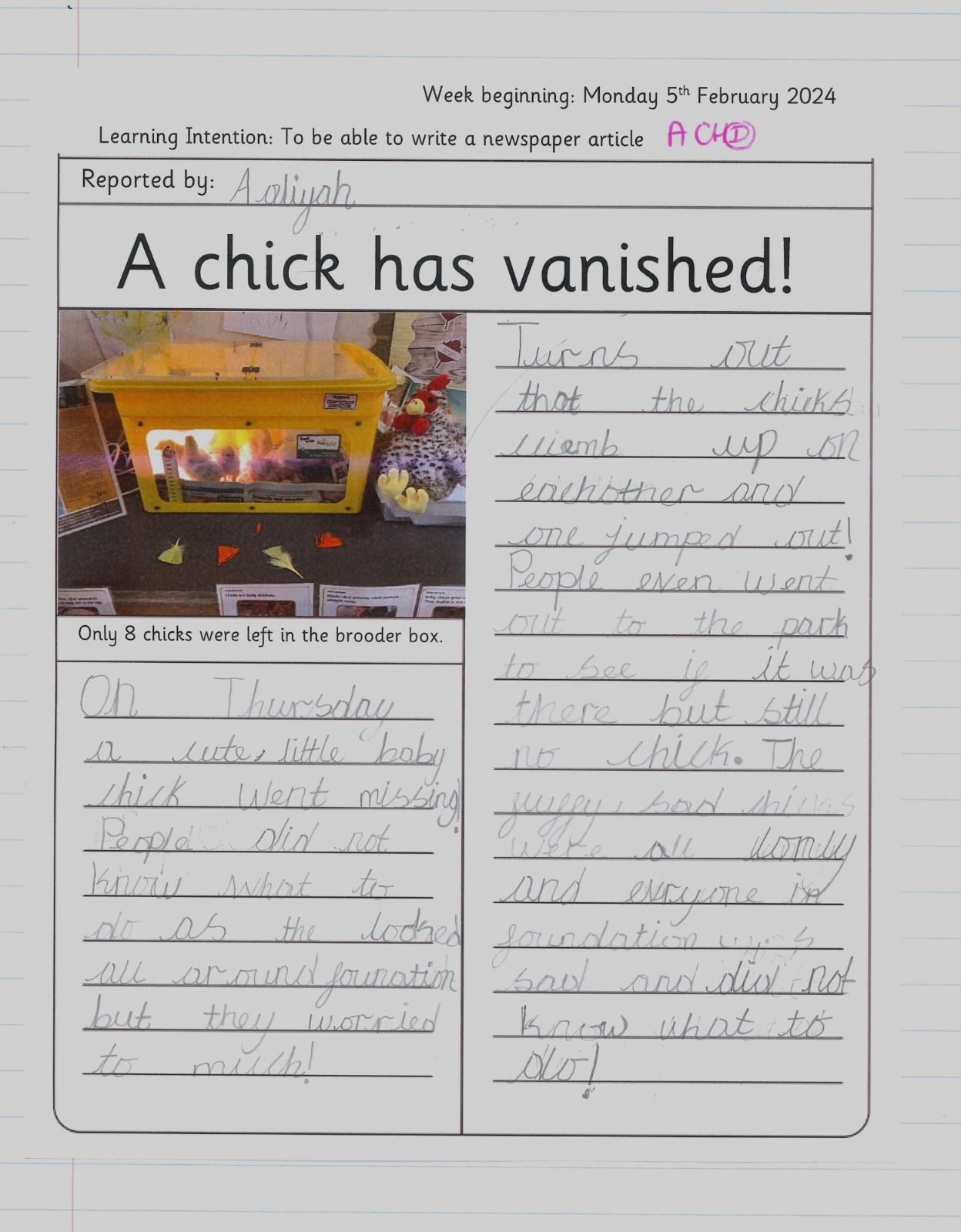
.jpg)
